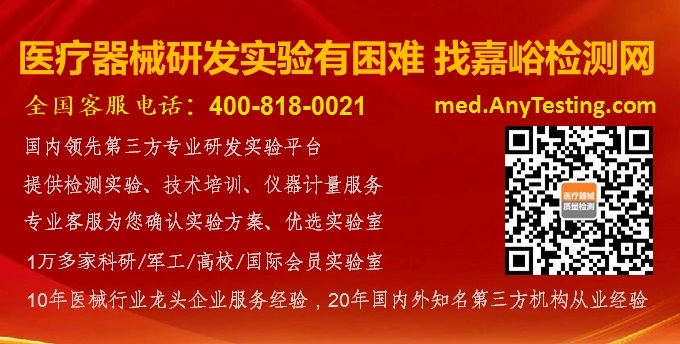您当前的位置:检测资讯 > 科研开发
嘉峪检测网 2024-11-21 11:47
什么是真实世界数据(Real World Data, RWD)和真实世界证据(Real World Evidence, RWE)
"Real-world data refers to data about the use or potential benefits or risks of a drug that comes from sources other than traditional clinical trials." 该定义来自 Jacqueline Corrigan-Curay, J.D., M.D., director of the FDA's Office of Medical Policy Center. 这表明,这一主题已经进入制药行业,并已得到应用,尤其是在美国。
那么,什么是RWD?这是指与实际日常临床工作相关的数据收集。这些来自常规临床实践的数据所提供的证据被称为RDE。
RWD--收集与使用
医药RWD
RWD通常在观察性研究中收集。这些研究受到药品监管。例如,2019 年 12 月,BfArM 发布了以下内容:
"Joint recommendations of the Federal Institute for Drugs and Medical Devices and the Paul-EhrlichInstitut on observational studies in accordance with Section 67 (6) of the German Medicines Act and on the notification of non-interventional safety studies in accordance with Section 63f of the Medicinal Products Act"
到目前为止,还没有针对医疗器械的此类规定。
来自医疗器械常规临床实践的数据
就 DiGA 而言,在进行 DiGA 研究或申请列入 DiGA 目录之前,需要有一个评估概念。其中应包括"systematic data evaluation in addition to a systematic literature search and evaluation, also the inclusion of own systematically evaluated data obtained in the application of the DiGA."。
因此,这些数据来自应用 DiGA 的常规临床实践。
Roche Diabetes也对此发表了意见:
"Evaluating the benefits of digital health applicationsvia real-world data: When evaluating the benefits of digital health applications, it should be taken into account that there is a growing perspective in the field of pharmacological approval procedures that randomized controlled trials are an incomplete reflection of the reality of care. Randomized, controlled trials are suitable for establishing valid causalities between an intervention and its effect. Real-world data (RWD) is seen as a potential source to gain insights into how certified medical devices and approved drugs influence the outcomes of patients in real-world care. The European Medicines Agency (EMA) is therefore intensively discussing how RWDs can be integrated into solving complex issues in the future..."
然而,不仅 DVG(Digital Care Act ) 需要此类数据,MDR 也需要PMCF。这是为了持续收集医疗器械的临床数据,主要目的是检验在正常或常规护理中的使用是否对特定患者或用户有效。因此,这些数据必须能很好地反映日常生活和常规护理。
在MDR附录 IXV 中,B 部分第 1 句指出:
"Post-market clinical follow-up shall be understood as an ongoing process to update the clinical evaluation in accordance with Article 61 and Part A of this Annex and shall be addressed in the manufacturer's post-market surveillance plan. In post-market clinical follow-up, the manufacturer shall proactively collect and evaluate clinical data resulting from the use in or on the human body of a CE marked device, placed on the market or put into service within the scope of its intended purpose in accordance with the relevant conformity assessment procedure, in order to confirm safety and performance during the expected life of the device; ensure the continued acceptability of the risks identified and identify emerging risks on the basis of relevant evidence.';
由于常规临床实践的条件通常不同于在规定框架内进行的随机对照临床试验(RCT),RCT只在有限程度上适合作为 PMCF study。其结果只能在有限的范围内应用于实际的常规应用。此外,也不一定能发现新的风险和机会以及off-label use。
对医疗器械的监管
但在医疗器械的监管方面,如何对这些研究进行分类?在此,应首先对循证医学(evidence-based medicine)进行探讨。
首先,要区分介入性研究(interventional studies)和非介入性研究(non-interventional studies),即所谓的观察性研究(observational studies)。在介入性研究中,如果计划在特定人群中使用医疗器械,并为此确定了所有条件,则称为介入性研究。这里的结果总是由干预造成的。因此,介入研究通常是比较性(comparative)的,而且总是前瞻性(prospective)的。干预研究包括备受引用、备受要求,也可以说备受恐惧的随机对照试验(RCT),它是循证医学的 "黄金标准"。
在观察性研究(observational studies)中,不进行有计划的干预,因此也被称为非干预性研究。在观察性研究中,对患者的应用和进一步的病程进行观察,并得出适当的结论。
因此,在观察性研究中,不按照临床方案进行干预,完全按照治疗实践进行治疗。观察性研究既可以是比较性研究,也可以是非比较性研究;还可以以回顾性数据为基础。最著名的有对照组的非干预性研究包括队列研究和病例对照研究。不过,registries也从常规临床实践中收集数据,然后进行回顾性评估。
由于观察性研究的结果可能受到各种偏差和混杂因素的影响,其内部有效性低于干预性研究。无论如何,在回答特定干预措施的临床效果问题时,观察性研究的证据通常低于干预性研究,因为后者专门评估内部有效性。
通过观察可以建立相关性,但无法证明因果关系。不过,观察性研究通常比干预性研究更快、更具成本效益,而且与干预性研究相比,观察性研究具有更高的外部有效性。如果没有确定的应用评估框架,观察性研究的内部效度较低(因此在疗效方面的意义也较小),但因此可以更好地了解常规临床实践实际条件下的疗效。
以这种方式收集的数据被称为RWD,由此产生的证据也相应地被称为RWE。
从监管角度看,医疗器械只有获得 CE 标志才能用于常规临床实践。观察研究(observational study)并非基于临床方案(clinical protocol),而是基于观察计划(observational plan)。因此,MDR第 74 条并不适用(第 74 条是上市后临床试验的基础,但必须准备附录 XV 第 II 章要求的文件,如方案)。
到目前为止,观察性研究受MPG第 23b 节(临床试验的例外情况)和医生职业行为准则》(Professional Code of Conduct for Physicians ,BO)第 15 节专业建议的约束。现在,这一段在MDR中不再适用。在§82(2)中,MDR提及成员国可选择在地方一级对其他临床试验进行监管。德国医疗器械适应性法案(German Medical Devices EU Adaptation Act ,MPEUAnpG)通过在第 47 节中定义 "已带有 CE 标志的其他临床试验 "来实现这一点。该法还明确规定,如果观察性研究符合以下两个标准,则无需通知联邦当局,也无需伦理委员会的赞成票:
Participants will not be subjected to any additional stress/therapies (for routine therapeutic treatment) the medical device is used for its intended purpose.

来源:MDR小能手


